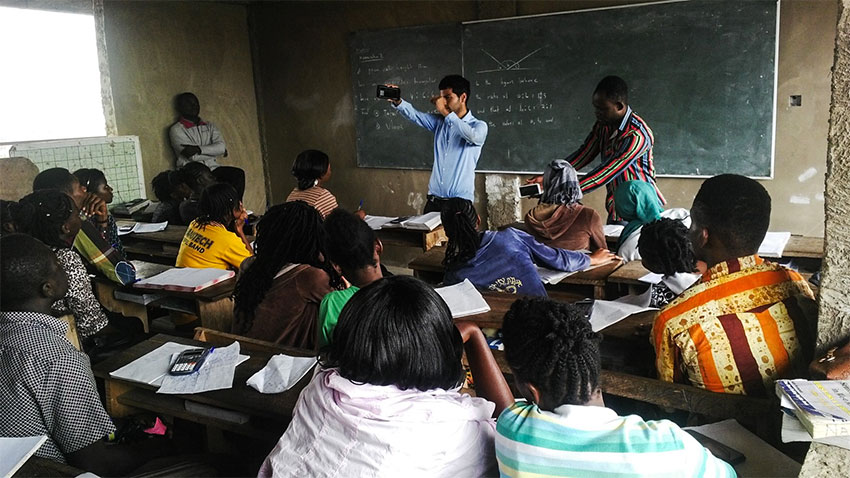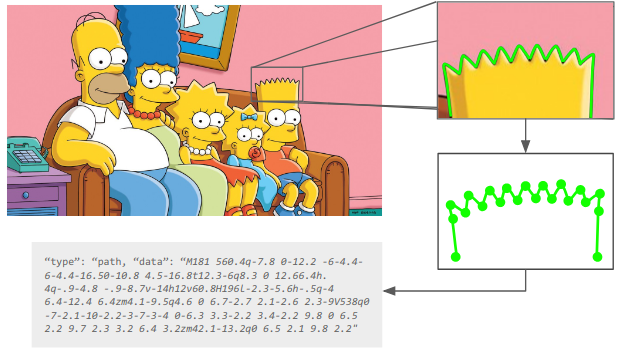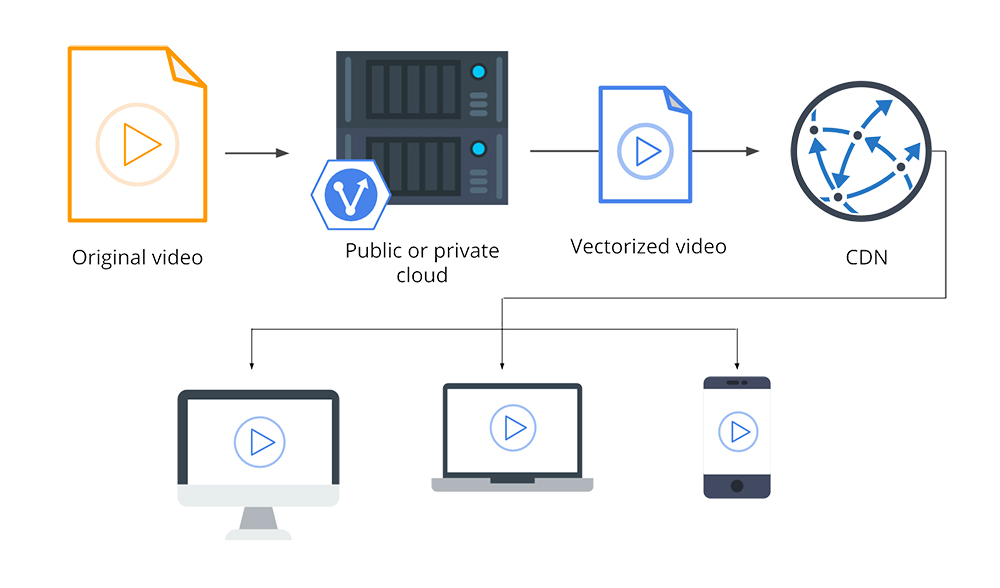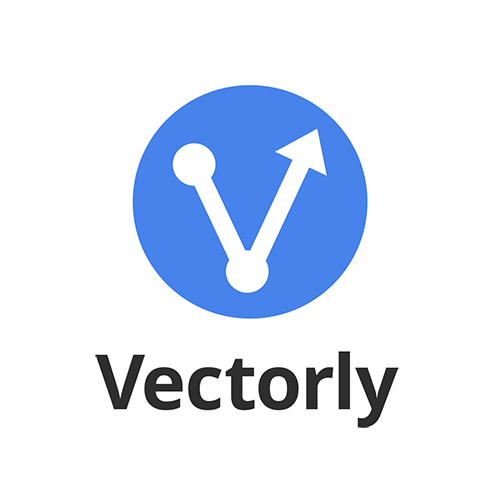BABATUNDE ALAWODE, H’16
Creating Opportunities for Africans through Video Technology
“I hope to contribute to the African renaissance, which I believe will not be complete without a revamp of the education sector.”
Introducing Video Vectorization
THE CHALLENGE. According to UNESCO, sub-Saharan Africa has the highest rates of education exclusion. Even the rise of elearning programs, which in theory brings educational programs to remote and underdeveloped areas, has not been able to offset this trend. The issue with elearning programs is that the bandwidth required for their programs is too large for most internet networks and devices in the developing world. The vast majority of internet users in emerging markets do not have broadband or wifi at home – instead connecting to the internet primarily through mobile devices at hotspots or over relatively expensive pre-paid mobile data subscriptions. However, courses from online education giants such as Coursera, edX, Khan Academy and Udacity are designed to be used mostly over high speed broadband. Therefore, less than 1% of students in countries like Ghana and India can access existing online education content.
THE PROCESS. Alawode studied in Nigeria until he moved to the United States for graduate school when he was 23. He felt fortunate to grow up living right next door to the only internet-enabled public library in the whole of Nigeria. This allowed him to access MIT’s OpenCourseWare for free. To stream the videos for even one hour a day would have cost him double the salary his mother made a day, making such content unaccessible for the majority of students in Nigeria. When he moved to the United States, it became even more apparent how fortunate he had been to have this access to online education. He immediately saw the difference between the educational access of the United States compared to the developing world, and also saw an opportunity in the need for supplemental education in emerging markets. To fill this gap, he co-founded an engineering outreach non-profit called ImpactLabs to take the MIT style of education to Nigerian universities through summer camps and later through a physical workshop space. This experience was the perfect springboard for attempting to build the network and expertise required to launch an even more ambitious project, dot Learn.
Alawode and co-founder Sam Bhattacharyya developed a video-learning app focused on Sub-saharan Africa and created a video vector technology that compressed videos into sizes that could easily be supported on mobile devices and 2G internet. They achieved this by encoding video as text, rather than pixels. For the cost of a text message, a student from a Sub-saharan African country could watch several hours of elearning videos. The goal of dot Learn was to provide a platform and affordable access to high quality supplementary education to youths, creating opportunities for Africans in the process. However, the venture took a dramatic turn due to the efficiency and immediate success of their innovative video vectorization and educational technology.

Source: Vectorly
THE RESULT. The dot Learn app, which has 6 courses, 5000 videos, has helped over 50,000 students in West Africa study for the regional university entrance exam. Due to this success, Alawode and Bhattacharyya received numerous requests from companies to license the technology, so the team made the decision to open their video-vectorization technology to the public and rebranded dot Learn as Vectorly in 2018. With this shift in direction, Vectorly aims to create numerous opportunities for Africans. Vectorly now partners with other companies to support their initiatives of making education accessible and affordable to Africans and youth in the developing world. This new peer-to-peer direction also benefits companies in the developing world who can utilize video vectorization to reach a much larger audience. By the end of 2018, Vectorly had processed over 2000 videos with their vectorization technology and won first place at the TiE New York Pitch Competition. The most recent investors of the company are Cisco Innovation Grand Challenge and The Legatum Center.

 Source: Vectorly
Source: Vectorly

LEARN MORE ABOUT VECTORLY
Vectorly is a video compression startup from MIT. The patented vector-graphics codec of Vectorly compresses video by 10x while improving quality. The technology uses equations rather than pixels to encode shapes and motion in videos, which reduces data usage. Reduce buffering, load times, and data costs with Vectorly’s video vectorization technology.
ABOUT BABATUNDE ALAWODE
Advancing the Path for Education Technology
Babatunde Alawode earned two Masters of Science degrees from the Massachusetts Institute of Technology (MIT), one in Mechanical Engineering and the other in Material Science and Engineering. He also holds a PhD from MIT in Mechanical Engineering and has won several awards including the DLab ScaleUps Fellowship and the Martin Family Fellow for Sustainability. He also won first place in the MIT-Harvard Business Case Competition. Alawode’s initial focus was material design for clean and sustainable energy, but as a self-taught programmer he ended up pursuing video coding and edtech as career paths. Through his entrepreneurial endeavors, he has helped tens of thousands of Africans gain access to higher learning education.
It has been Alawode’s passion as a Nigerian entrepreneur to create opportunities for Africans and to help narrow the gaps in education between the developed and developing worlds. Dot Learn was a vehicle to provide high quality supplementary education to youths of developing countries, and intersected Alawode’s interests and expertise. With the shift from dot Learn to Vectorly, Alawode can support companies in the edtech space as well as other entrepreneurs and startups who are using the video vectorization as a solution to get around the challenges of technological infrastructure in African countries.
I AM A HARAMBEAN
Babatunde Alawode sees Harambe as a fantastic networking opportunity to meet with many Harambeans and mentors, discuss ideas and share notes: